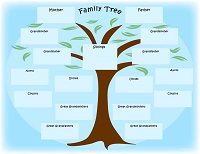 To die “intestate” in South Carolina means to die without a valid will or assets not effectively disposed of by your Will. In South Carolina, the only assets that are affected by intestacy succession laws are those assets that would have passed through your will had you created one. Intestacy laws therefore do not apply to property you might have transferred to a living trust, life insurance proceeds, funds in an IRA, 401(k), or other retirement account, or property you own with someone else in joint tenants with right of survivorship. These assets will instead pass to the surviving co-owner or to the beneficiary you named on the documents and will not be affected by your lack of valid will.
To die “intestate” in South Carolina means to die without a valid will or assets not effectively disposed of by your Will. In South Carolina, the only assets that are affected by intestacy succession laws are those assets that would have passed through your will had you created one. Intestacy laws therefore do not apply to property you might have transferred to a living trust, life insurance proceeds, funds in an IRA, 401(k), or other retirement account, or property you own with someone else in joint tenants with right of survivorship. These assets will instead pass to the surviving co-owner or to the beneficiary you named on the documents and will not be affected by your lack of valid will.
So how does intestate succession work in South Carolina?
The statutory line of succession depends on whether or not you have a living spouse, children, grandchildren, parents, or close relatives when you pass. The intestate succession laws are statutory and are codified at S.C. Code Ann. 62-2-101. Intestate succession laws can vary from state to state, so the below statutes only apply to South Carolina. “Issue” where used herein refers to biological lineal descendants, which are most commonly children and/or grandchildren.
How much will my spouse get?
The intestate share of the surviving spouse is:
(1) if there is no surviving issue of the decedent, the entire intestate estate;
(2) if there are surviving issue, one-half of the intestate estate.
**A common misconception we have seen from our clients is the belief that all your assets will pass to your surviving spouse first and then your children. This is not the case if your assets pass through South Carolina intestacy.
How much will my children receive?
If you die without a will in South Carolina, your children will receive a share of your property, and the size of the share depends on how many children you have and whether or not you are married. Issues arise, however, when lines become blurred in the family history. For example, in order for your descendants to receive a share, the state of South Carolina has to legally recognize your children as your children. This means that adopted children who you legally adopt will receive a share, the same as your biological children. Foster children and stepchildren you never legally adopt, however, will not automatically receive a share. Children you put up for adoption and were legally adopted by another family will not receive a share. “Half” siblings (i.e. you share the same father but different mother and vice versa) will be treated as “whole” siblings for purposes of intestate succession. Also, if a sibling dies before you but leaves behind children of his or her own, those children will inherit the share their parents would have received had they survived. This type of descent and distribution is legally called per stirpes.
When children are born outside a marriage, they will only receive a share of the father’s estate if (1) the father participated in a marriage ceremony that later turned out to be void; (2) the father’s paternity was legally established before his death; or (3) the father’s paternity was legally established after his death within the period of time required by South Carolina law. If you are worried about how your children might be affected by intestate succession, speak with a professional about how to ensure your children are protected after you pass.
What if I have no spouse and no children?
In the scenario where you have no living spouse or descendants, but you still have living parents, your parents or single parent will inherit everything. Finally, in the event you pass and have no living spouse, children, grandchildren, or parents, your living siblings will inherit your assets. The line of succession continues from there to your closest living blood relative, which can get complicated the farther out you have to go.
The Purpose of SC Intestate Succession
The purpose of intestate succession is for the State to formulate a plan of asset distribution that would have likely been similar to your plan had you created a valid will. Unfortunately, you may have created a will you thought to be valid already, but after your passing is determined to be flawed. If you create a will, and it does not comply with South Carolina’s statutory requirements, your will may be declared invalid and intestate succession will then apply.
Seeking the help of a licensed South Carolina estate lawyer can be crucial in formulating a valid will that expresses your specific wishes and protects your loved ones according to your instructions.
